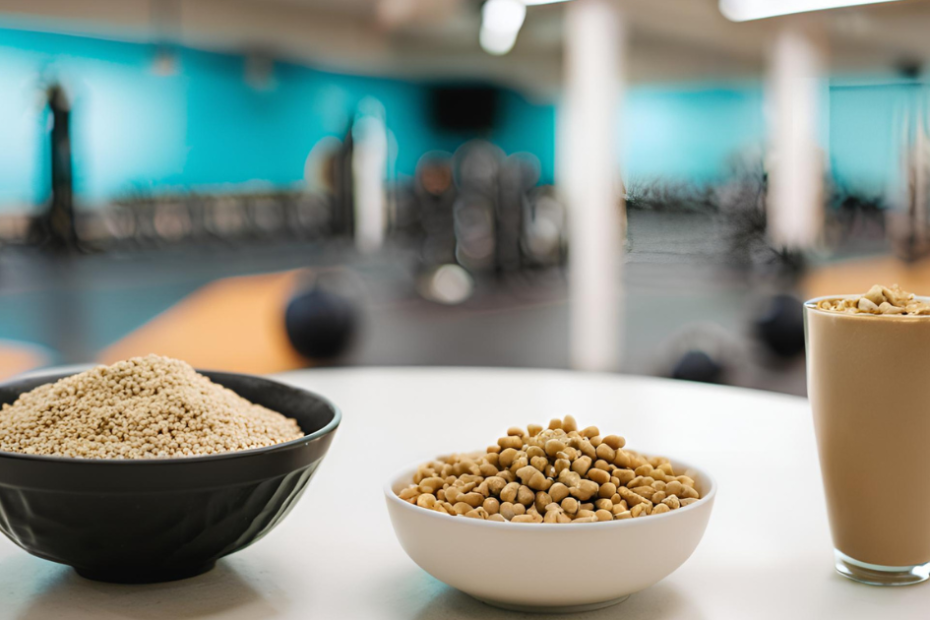The world of strength training is becoming increasingly diverse, and one of the hottest trends in recent years is the use of natural, plant-based supplements to enhance results. Among the alternatives gaining popularity, vegan protein stands out as a favorite for athletes and fitness enthusiasts—whether you’re vegan or simply seeking healthier, more sustainable options. In this article, we explore what vegan protein is, its benefits for muscle growth and recovery, and how to seamlessly incorporate it into your training regimen.
What Is?
Understanding Plant-Based Protein Sources
Vegan protein is derived entirely from plants. Unlike animal proteins, which are often derived from dairy sources such as whey, vegan protein comes from sources like peas, rice, chickpeas, hemp, soy, and quinoa. This makes it an ideal choice for individuals with lactose intolerance, allergies, or those who prefer to avoid animal products for ethical or environmental reasons.
Benefits of a Plant-Based Protein
Plant-based protein is not only free from animal derivatives but also typically free from artificial additives like preservatives, colorings, and sweeteners. Many vegan protein supplements are formulated to provide a complete amino acid profile by blending different sources. For example, combining pea and rice protein creates a synergistic effect that delivers all essential amino acids necessary for muscle repair and growth.
Why Vegan Protein Is Ideal for Bodybuilding
1. Rich in Essential Amino Acids
Key Point:
Muscle building requires a steady supply of essential amino acids for protein synthesis. While some plant proteins may be considered “incomplete,” modern formulations combine multiple sources to provide a balanced profile. This ensures that your muscles receive all the building blocks needed for recovery and growth.
Scientific Insight:
Research published in the Journal of the International Society of Sports Nutrition indicates that a well-formulated vegan protein supplement can be as effective as whey protein in promoting muscle synthesis.
2. Easier Digestion and Absorption
Key Point:
Many athletes report that plant-based protein is gentler on the digestive system compared to traditional dairy-based protein powders. This is especially important for individuals with sensitive stomachs or those prone to bloating.
Practical Note:
Vegan protein blends are often easier to digest because they contain less lactose and fewer allergens, reducing the risk of gastrointestinal discomfort.
3. Lower Allergenic Potential
Key Point:
Because vegan protein is dairy-free, it is an excellent option for people with milk allergies or lactose intolerance. The absence of common allergens makes it a safer and more accessible supplement for a broader audience.
4. Supports Overall Health and Sustainability
Key Point:
The supplements often come with additional nutrients like fiber, vitamins, and minerals. For instance, hemp protein is rich in omega-3 and omega-6 fatty acids, which have anti-inflammatory properties beneficial for recovery.
Environmental Impact:
Moreover, the production of vegan protein typically has a lower carbon footprint than animal-based protein. This aligns with a more sustainable and ethical approach to nutrition.
5. Aids in Weight Management
Key Point:
High in fiber and low in fat, many vegan protein products can help control appetite and prolong satiety. This is beneficial not only for muscle gain but also for maintaining a lean physique, particularly during cutting phases.
How to Incorporate It Into Your Training Routine
Integrating plant-based protein into your diet is straightforward and versatile. Here are some practical tips:
Post-Workout Shakes
Recipe Idea:
Blend one scoop of vegan protein with water, almond milk, or a mix of fruits. Adding a natural sweetener like a small amount of honey can enhance the flavor without compromising nutritional integrity.
Incorporate into Meals
Cooking Tip:
Vegan protein powders can be added to recipes such as pancakes, oatmeal, and baked goods to enrich your meals with extra protein. This approach not only diversifies your protein sources but also makes your diet more interesting and varied.
Quick Snacks
Snack Idea:
Combine your vegan protein with oats or seeds to create homemade protein bars. These bars are an excellent on-the-go snack, perfect for busy training days.
Top Sources of Vegan Protein in the Market
For maximum benefits, choose high-quality vegan protein supplements. Here are some popular options:
- Pea Protein: Known for its high digestibility and complete amino acid profile when blended.
- Rice Protein: An excellent hypoallergenic option, often used in combination with pea protein.
- Hemp Protein: Offers additional benefits from omega fatty acids, contributing to overall health.
- Protein Blends: Combining sources like pea, rice, and quinoa ensures a comprehensive nutritional profile.
FAQ: Your Questions Answered
Q: Is vegan protein as effective as whey protein for muscle gain?
A: Yes, when formulated correctly, vegan protein can be just as effective as whey protein for muscle synthesis and recovery.
Q: Can I use vegan protein even if I’m not vegan?
A: Absolutely. Vegan protein is a great option for anyone seeking a cleaner, hypoallergenic protein source.
Q: Does vegan protein cause digestive discomfort?
A: Generally, plant-based proteins are easier to digest than whey, especially for those with lactose intolerance.
Q: What is the best time to consume vegan protein?
A: The ideal time is immediately post-workout for muscle recovery, though it can also be consumed as a meal supplement at any time of the day.
Q: Can I build muscle solely on vegan protein?
A: Yes, with a balanced diet and proper training, you can achieve significant muscle gains using only plant-based protein sources.
Conclusion
This protein offers a robust alternative to traditional animal-based supplements. With its complete amino acid profile, ease of digestion, lower allergenic potential, and added health benefits, plant-based protein is not only ideal for muscle gain but also aligns with a sustainable, ethical lifestyle. Whether you’re a professional athlete or a fitness enthusiast, incorporating vegan protein into your training routine can enhance muscle recovery, support overall health, and contribute to weight management.
Embrace the benefits of this natural supplement by choosing high-quality products from reputable brands and integrating it into a balanced diet. For more insights on plant-based nutrition and fitness, explore trusted resources like Examine.com and Healthline.
Read also: Peruvian Maca: The Ancient Root Supercharging Modern Fitness
